Our group hike to ⛰️Zirbitzkogel (2 396 m), the highest point of the Seetal Alps in Austria – homeplace of Hana.
📷 Pictures from Stefan Hampel and Sasha Serebrennikova.
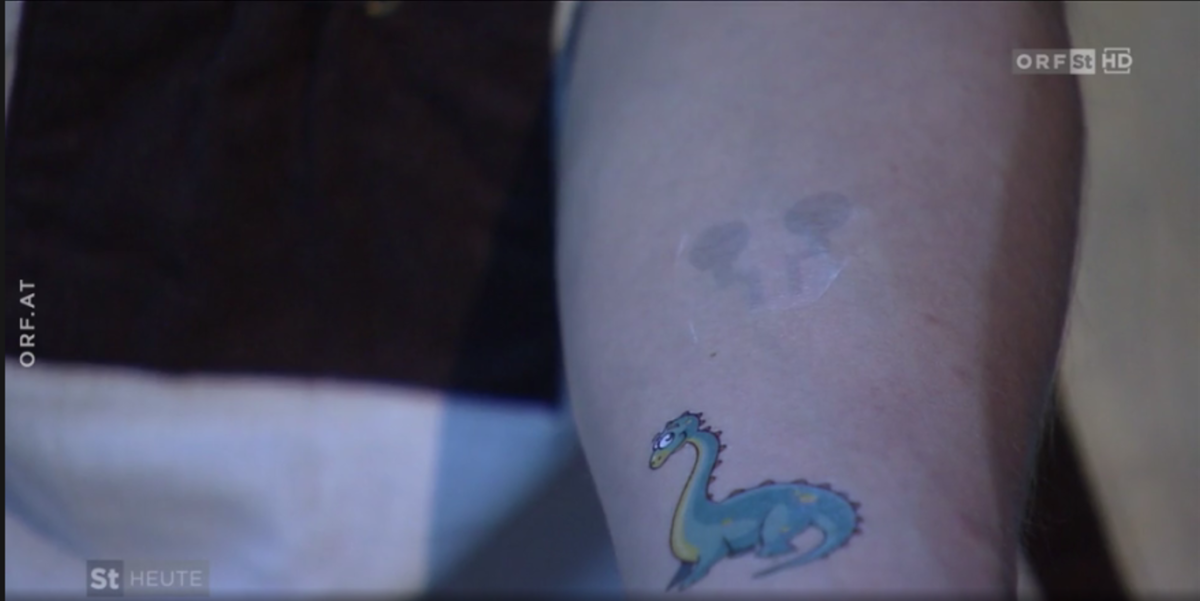
Our tattoo electrodes and the activities of LAMPSe group TUGraz have been highlighted by ORF, the Austrian National Broadcasting Corporation, on ORF2 News “Steiermark Heute”.
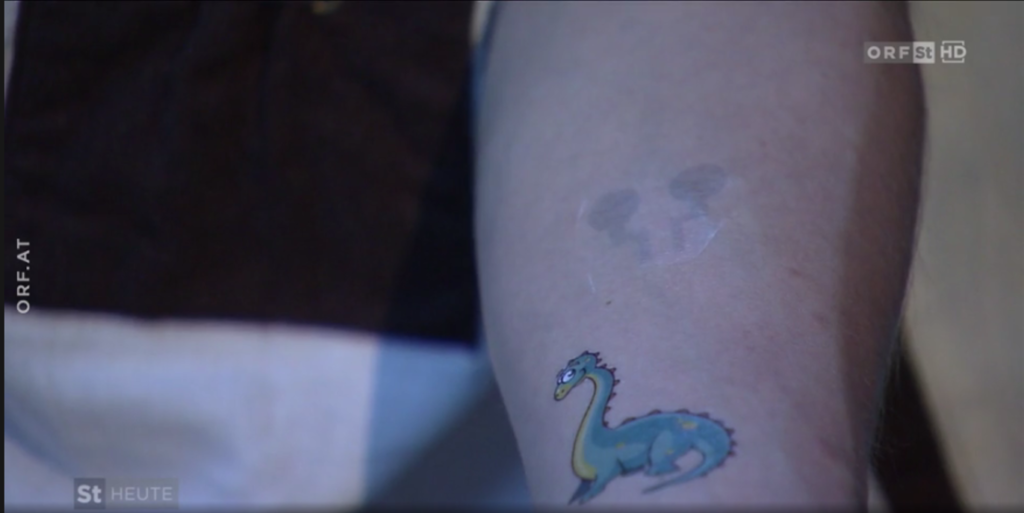
Here the link to the video available on the YouTube channel of TU Graz:
Check out our INVITED REVIEW:
Laura M. Ferrari, Kirill Keller, Bernhard Burtscher, Francesco Greco*
Multifunctional Materials, 2020, 3 3.
Published online on July 16, 2020
DOI: 10.1088/2399-7532/aba6e3
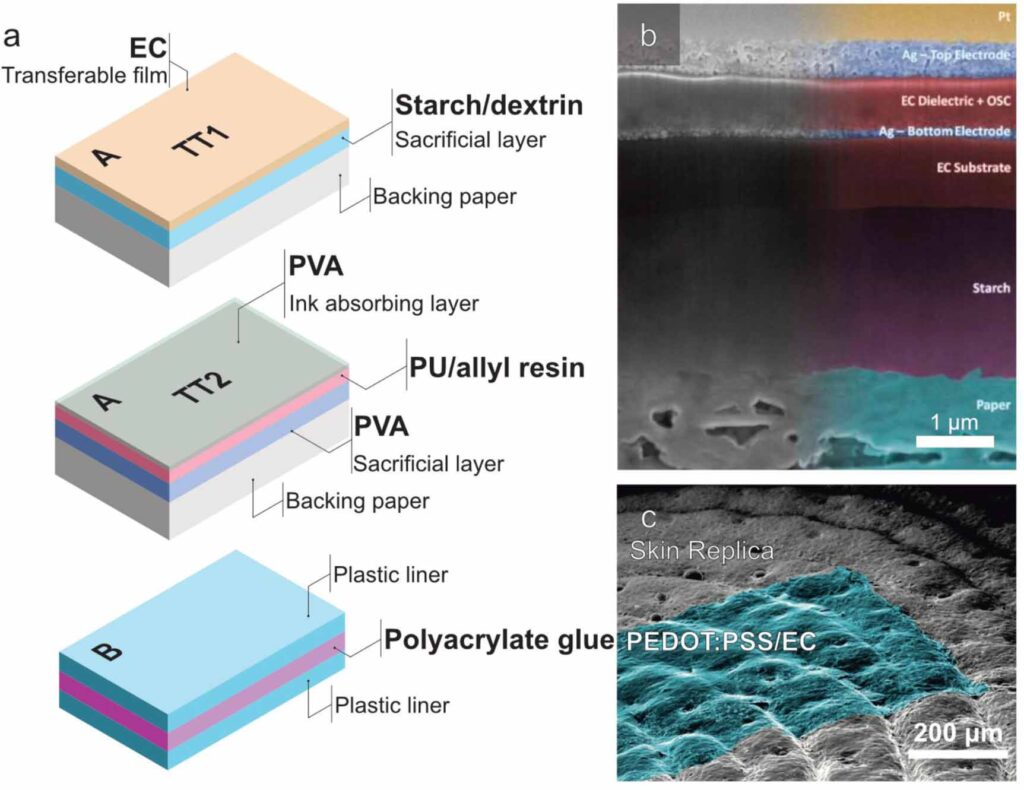
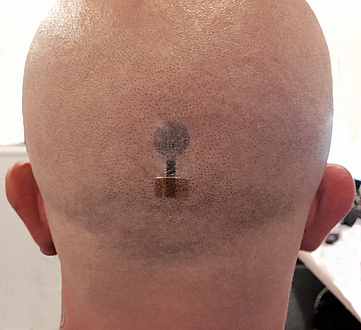
New press release by TUGraz showcasing our tattoo electrodes for brain signals recordings, a study by Laura Ferrari (former PhD student, now postdoc in France) and made in collaboration with Esma Ismailova and her group at Bioelectronics Dept., École Nationale Supérieure des Mines de Saint-Étienne, France . Here the links to the full text of the press release and to press coverage.

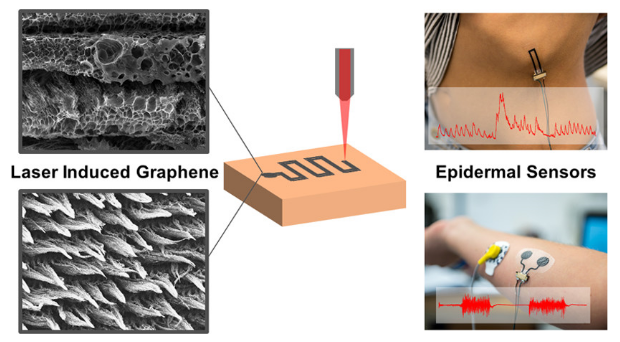

Alexander Dallinger, Kirill Keller, Harald Fitzek, Francesco Greco
ACS Appl. Mater. Interfaces, 19855-19865
Publication Date: April 6, 2020
https://doi.org/10.1021/acsami.0c03148
The conversion of various polymer substrates into laser-induced graphene (LIG) with a CO2 laser in ambient condition is recently emerging as a simple method for obtaining patterned porous graphene conductors, with a myriad of applications in sensing, actuation, and energy. In this paper, a method is presented for embedding porous LIG (LIG-P) or LIG fibers (LIG-F) into a thin (about 50 μm) and soft medical grade polyurethane (MPU) providing excellent conformal adhesion on skin, stretchability, and maximum breathability to boost the development of various unperceivable monitoring systems on skin. The effect of varying laser fluence and geometry of the laser scribing on the LIG micro–nanostructure morphology and on the electrical and electromechanical properties of LIG/MPU composites is investigated. A peculiar and distinct behavior is observed for either LIG-P or LIG-F. Excellent stretchability without permanent impairment of conductive properties is revealed up to 100% strain and retained after hundreds of cycles of stretching tests. A distinct piezoresistive behavior, with an average gauge factor of 40, opens the way to various potential strain/pressure sensing applications. A novel method based on laser scribing is then introduced for providing vertical interconnect access (VIA) into LIG/MPU conformable epidermal sensors. Such VIA enables stable connections to an external measurement device, as this represents a typical weakness of many epidermal devices so far. Three examples of minimally invasive LIG/MPU epidermal sensing proof of concepts are presented: as electrodes for electromyographic recording on limb and as piezoresistive sensors for touch and respiration detection on skin. Long-term wearability and functioning up to several days and under repeated stretching tests is demonstrated.
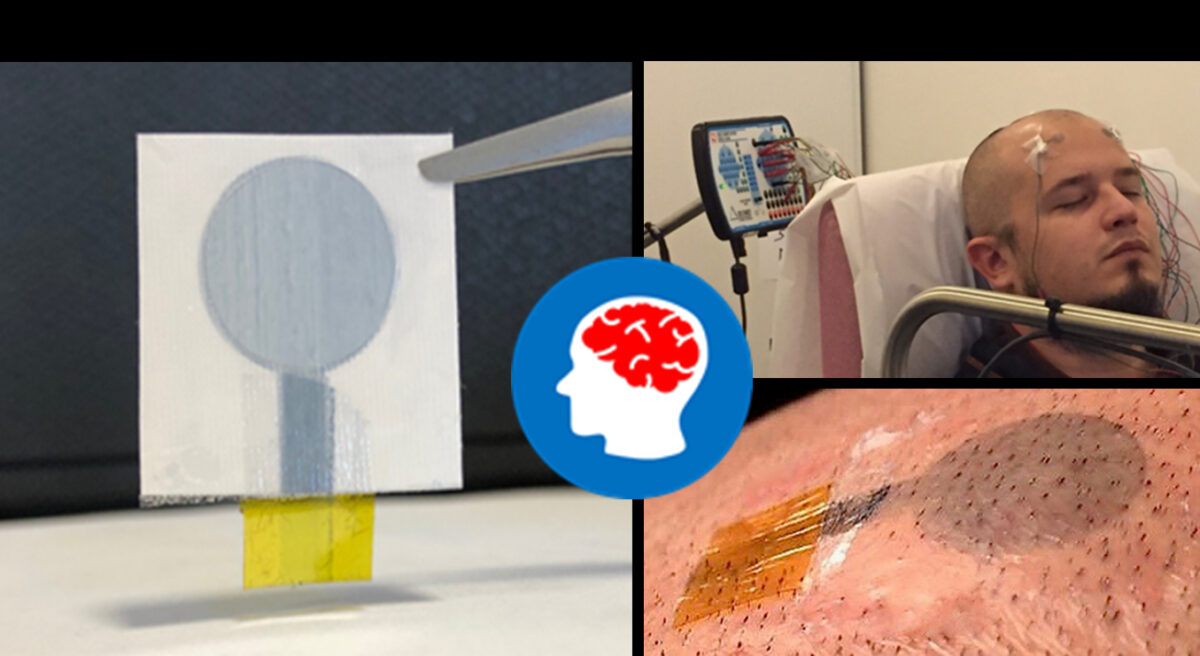
A new paper by Laura Ferrari et al. about temporary tattoo electrodes for on-skin electrophysiological recordings, in collaboration with group of Prof. Esma Ismailova (BEL EMSE, France). Electroencephalographic (EEG) signals are recorded in a clinical environment.
Publication (Open Access) in npj Flexible Electronics:
Conducting polymer tattoo electrodes in clinical electro- and magneto-encephalography
Laura M. Ferrari, Usein Ismailov, Jean-Michel Badier, Francesco Greco & Esma Ismailova
npj Flex Electron 4, 4 (2020).
DOI: 10.1038/s41528-020-0067-z
https://www.nature.com/articles/s41528-020-0067-z
In autumn 2019 TU Graz announced funding program for teaching and research cooperation with St. Petersburg Polytechnic University (Russia) in terms of strategic partnership agreement between universities. Grants aimed to support initial research activities and to exchange expertise of researchers at both universities.
Kirill Keller, the PhD student from LAMPSe, was awarded with the grant with a project “Functionalization of Laser-induced graphene by Atomic layer deposition for lithium-ion batteries“.
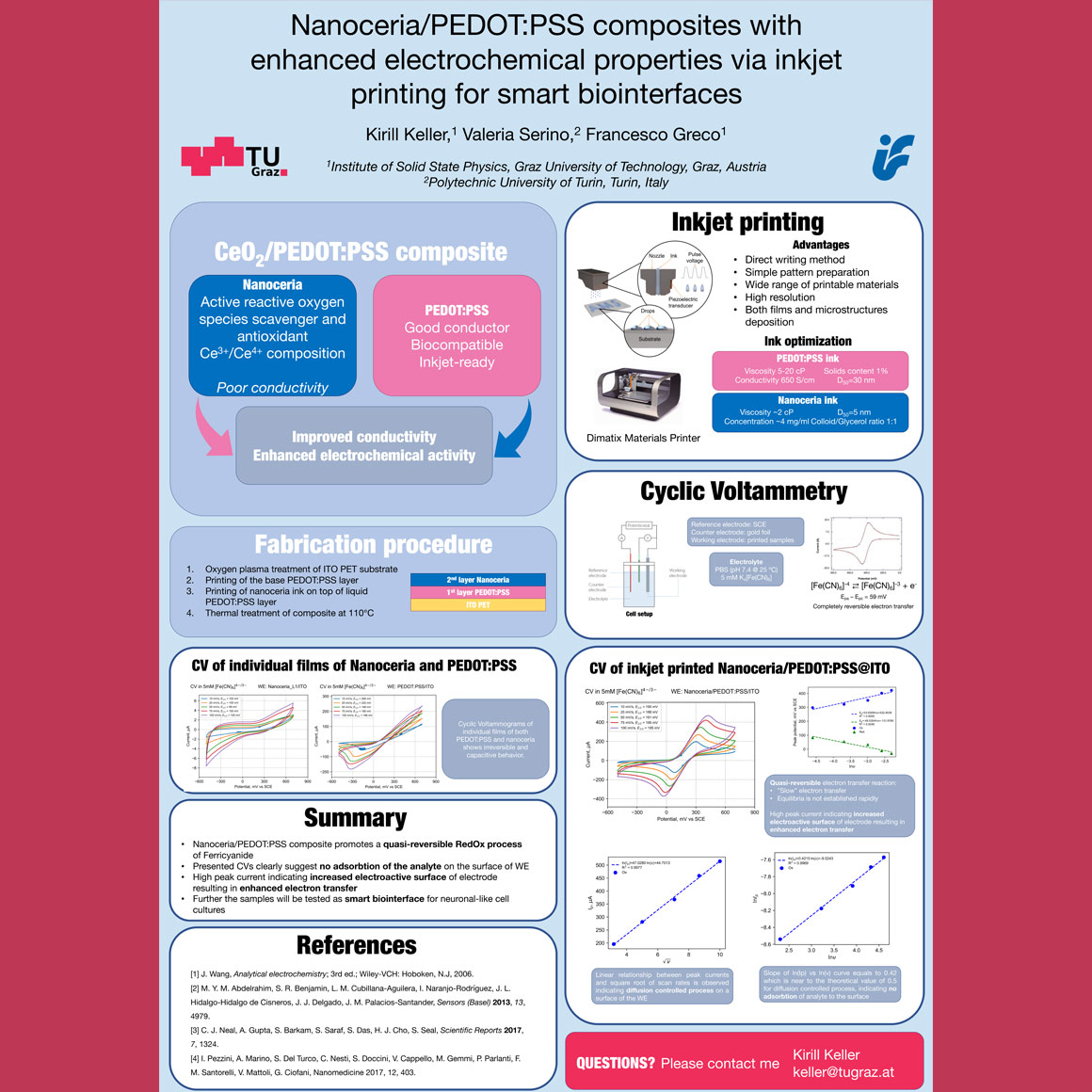
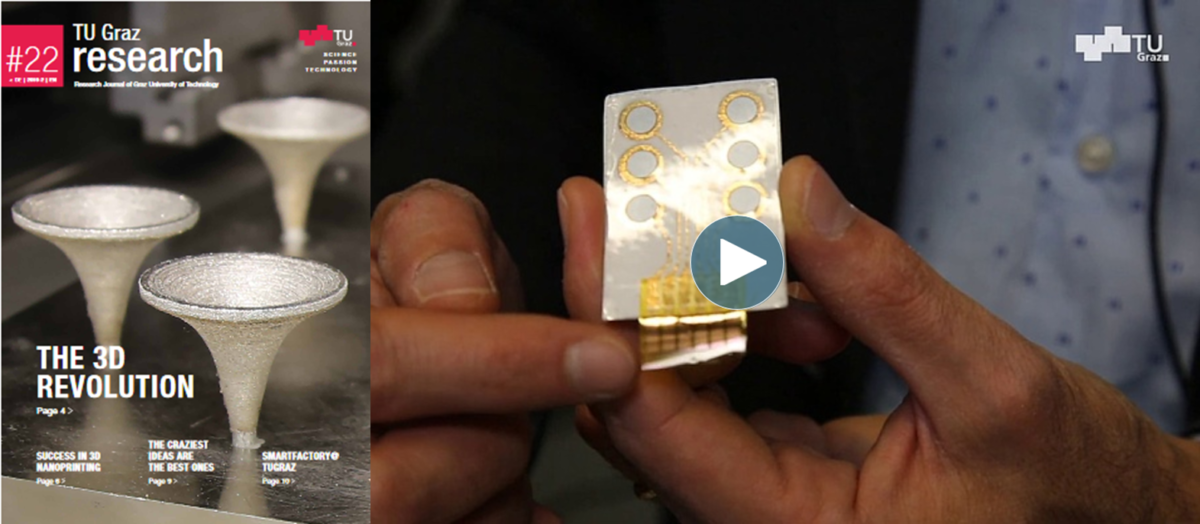
Latest issue of TU Graz research magazine focuses on Additive Manufacturing: the 3D Revolution. Tattoo skin-contact electrodes developed in our lab LAMPSE at Institute of Solid State Physics TU Graz are showcased in a short interview and a You-Tube Video.
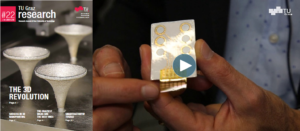

Hannah Kaspret, a talented high school student, spent her summer as FIT (Frauen In Technik) intern at the Institute of Solid State Physics of TU Graz in Greco Group and Coclite Group laboratories and built flower petals out of polydimethylsiloxane that reacts to water vapour thanks to a thin coating of a responsive polymer.
Link to Full Story on TUGraz News
Video on TUGraz YouTube Channel: